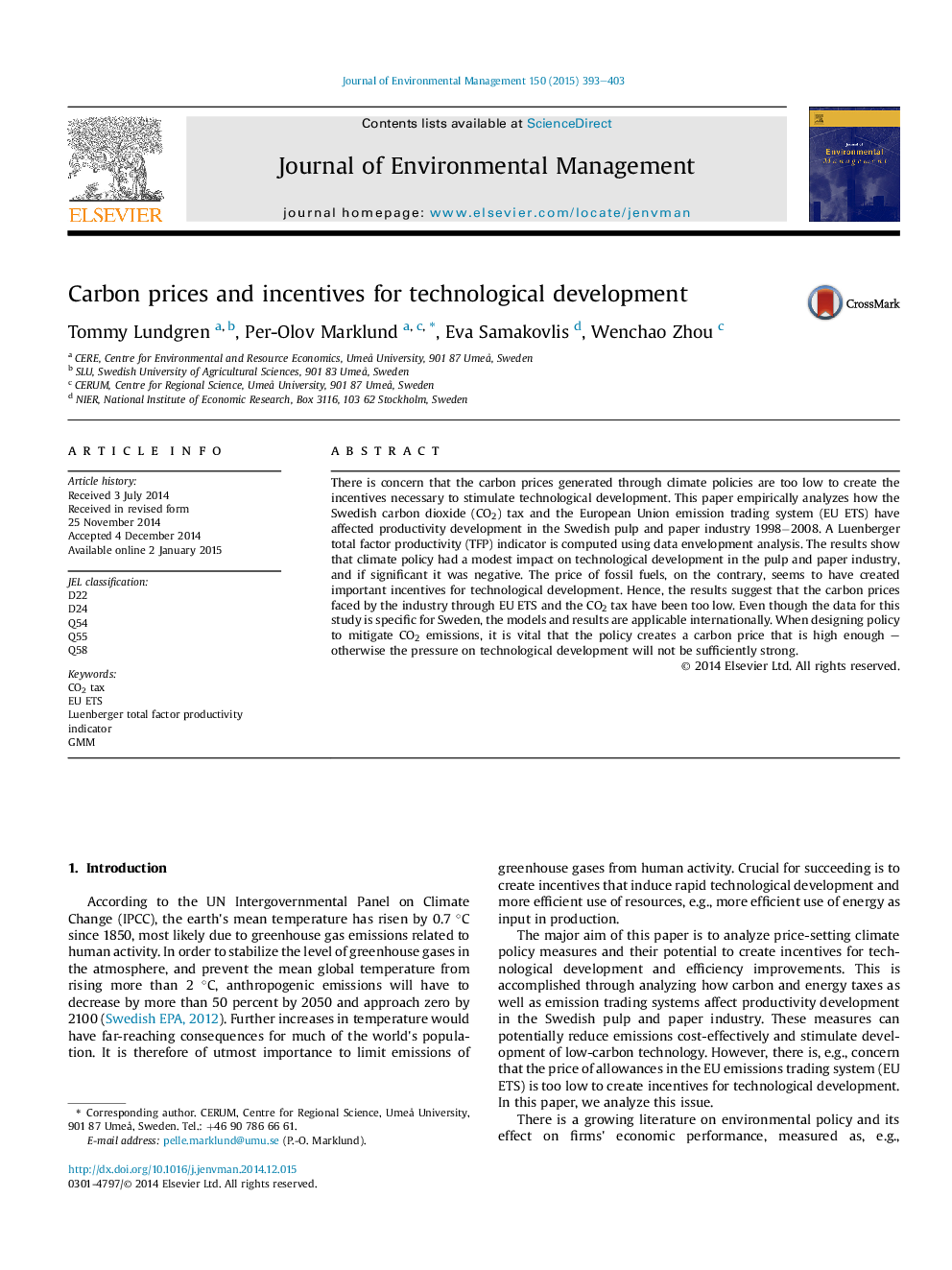| Article ID | Journal | Published Year | Pages | File Type |
|---|---|---|---|---|
| 7482947 | Journal of Environmental Management | 2015 | 11 Pages |
Abstract
There is concern that the carbon prices generated through climate policies are too low to create the incentives necessary to stimulate technological development. This paper empirically analyzes how the Swedish carbon dioxide (CO2) tax and the European Union emission trading system (EU ETS) have affected productivity development in the Swedish pulp and paper industry 1998â2008. A Luenberger total factor productivity (TFP) indicator is computed using data envelopment analysis. The results show that climate policy had a modest impact on technological development in the pulp and paper industry, and if significant it was negative. The price of fossil fuels, on the contrary, seems to have created important incentives for technological development. Hence, the results suggest that the carbon prices faced by the industry through EU ETS and the CO2 tax have been too low. Even though the data for this study is specific for Sweden, the models and results are applicable internationally. When designing policy to mitigate CO2 emissions, it is vital that the policy creates a carbon price that is high enough - otherwise the pressure on technological development will not be sufficiently strong.
Related Topics
Physical Sciences and Engineering
Energy
Renewable Energy, Sustainability and the Environment
Authors
Tommy Lundgren, Per-Olov Marklund, Eva Samakovlis, Wenchao Zhou,
